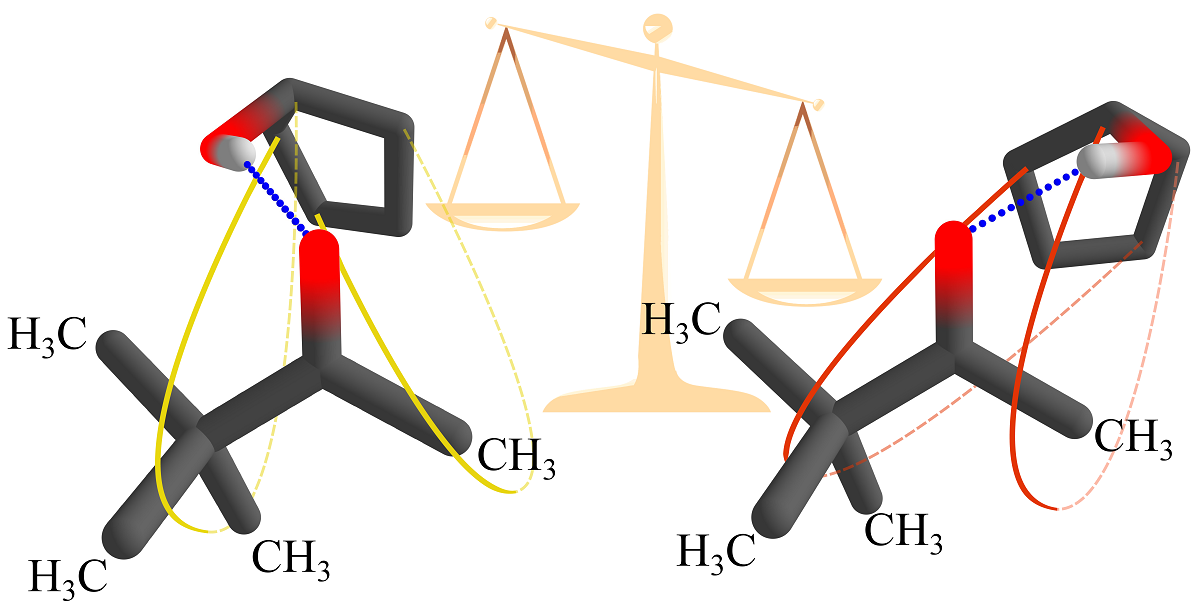The influence of distant London dispersion forces on the docking preference of alcohols of different size between the two lone electron pairs of the carbonyl group in pinacolone is explored by infrared spectroscopy of the OH stretching fundamental in supersonic jet expansions of 1:1 solvate complexes. Experimentally, no pronounced tendency of the alcohol to switch from the methyl to the bulkier tert-butyl side with increasing size is found. In all cases, methyl docking dominates by at least a factor of two, whereas DFT-optimized structures suggest a very close balance for the larger alcohols, once corrected by CCSD(T) relative electronic energies. Together with inconsistencies when switching from a C4 to a C5 alcohol, this points at deficiencies of the investigated B3LYP and in particular TPSS functionals even after dispersion correction, which cannot be blamed on zero point energy effects. The search for density functionals which describe the harmonic frequency shift, the structural change and the energy difference between the docking isomers of larger alcohols to unsymmetric ketones in a satisfactory way is open.

